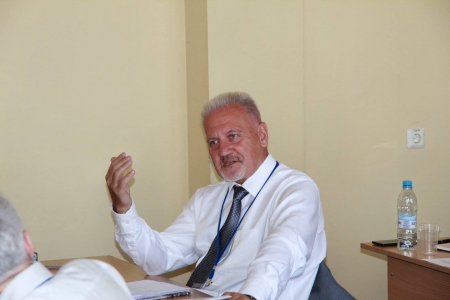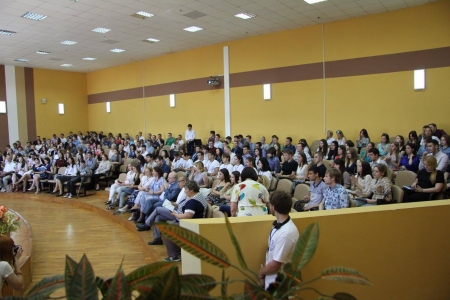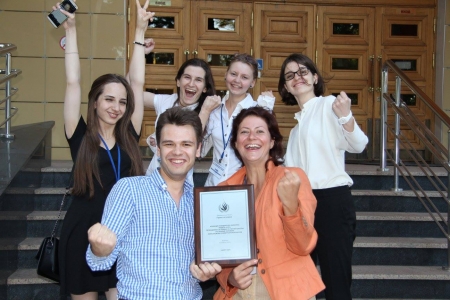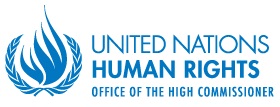IV Summer School on Human Rights (2016)
From 4 to 8 July Voronezh State University hosted the IV Summer School on Human Rights of the Consortium of Russian Universities (Peoples' Friendship University of Russia, Moscow State Institute of International Relations, Russian University for the Humanities, Kazan Federal University, Perm State National Research University, Ural State Law University , Ural Federal University, Voronezh State University and Yekaterinburg Humanitarian University) with the support of the Office of the United Nations High Commissioner for Human Rights (OHCHR).
Every year, the Consortium's Summer School covers the most pressing topics in the field of human rights protection. The IV Summer School was dedicated to two International Covenants: the Covenant on Civil and Political Rights and the Covenant on Economic, Social and Cultural Rights. This year, OHCHR celebrates the 50th anniversary of their adoption under the moto “Our rights. Our freedoms. Always”. Since cooperation between state and non-state actors has become essential for the realization of these fundamental rights, the main topic of the School was the interaction between the state and civil society in the implementation of these two important Covenants. At the inauguration of the Summer School, the Director of the UN OHCHR Department of Human Rights Council and Human Rights Treaties, Adam Abdelmula, proclaimed: “We must continue to demonstrate the importance of these documents. And we all – whether it be the UN or you as students and future leaders of your society – play an important role in taking steps to ensure that the Covenants are used to build peaceful and free societies”. The program of the fourth Summer School included lectures and workshops on the statutory and treaty mechanisms of the UN regarding the implementation of two international Covenants.

Particular attention was also paid to the Council of Europe regional mechanisms for the protection of civil, political, economic, social and cultural rights. Among the invited lecturers were professors of the Consortium of Russian Universities and the European Interuniversity Centre for Human Rights, government officials, ombudsmen, UN experts, prominent Russian human rights activists and representatives of non-governmental organizations. As noted by Adam Abdelmula, states should play the main role in the implementation of international Covenants, and at the national level, ideally, all major state bodies, human rights institutions, as well as civil society organizations should be involved in this process. Considering the importance of consolidation of efforts of all stakeholders in promoting international Covenants, the Summer School on Human Rights has become a vivid example of such inter-institutional interaction.

The school received active support from the regional authorities of the Voronezh region. Representatives of various government agencies took an active part in the work of the Summer School and raised topical issues on improving the national system for protecting human rights. At an independent plenary session dedicated to the role of national human rights institutions in promoting civil, political, social, economic and cultural rights, Ombudsmen in the Voronezh, Astrakhan, Ryazan, Yaroslavl regions and in the Republic of Ingushetia spoke before the students of the School. They spoke about their practical work in the regions and answered questions from the audience. As Tatyana Zrazhevskaya, Ombudswoman in the Voronezh Region, noted, “it is the lively discussion that makes it possible to better understand the human rights protection system and thereby contributes to the educational process”. Vice-Chairman of the UN Committee on Economic, Social and Cultural Rights, Professor, Head of the Department of International Law of the RUDN University Aslan Abashidze spoke about the role of citizens in the realization of their rights, stressing that “Individuals have the right, having exhausted national remedies, to address their complaints to international authorities, including UN committees”. Human rights organizations, which were also widely represented at the School, are called to help citizens.

Participants of the Summer School were addressed by the members of the Presidential Council for the Development of Civil Society and Human Rights Andrey Yurov and Anita Soboleva; General Director of ANO “Human Rights Institute” Valentin Gefter; Maxim Larionov, Head of the Department of Social Programs and Projects of the Department of Social Policy and Rehabilitation of the All-Russian Society of the Deaf; Head of the Regional Office of the International Federation of Red Cross and Red Crescent Societies in Russia Davron Mukhamadiyev. UrSLU student Irina Ledentsova noted that “The Summer School allowed us to combine theory with practice and provided an opportunity to ask questions that are not answered in textbooks”. The Summer School program was structured in such a way that lectures were supplemented with practical exercises and master classes. After a lecture by the head of the Council of Europe Program Office in the Russian Federation, Petr Zikh, on the topic “Institutions and mechanisms of the Council of Europe in the field of human rights protection”, Anton Burkov (Head of the Department of European Law and Comparative Law at the Liberal Arts University (Yekaterinburg) conducted a case studies on how to “bring” human rights from the European Court of Human Rights to the district court of your city and how to help a specific person while simultaneously solving a structural problem of law or practice. “Events like the Summer School on Human Rights are extremely interesting, useful and relevant. Lawyers need to be trained to defend the rights of citizens. After all, it is the graduates of law schools who can make a significant contribution to the improvement of civil society and protect the specific rights of a particular person” said Tatyana Golovachyova (Chairperson of the Voronezh Regional Duma Committee on Housing and Utilities, Energy and Tariffs). The School’s program was aimed at acquiring and expanding knowledge about universal and regional mechanisms for the protection of human rights, the activities of the UN human rights treaty bodies, the European human rights system and ensuring human rights in accordance with international standards. According to Petr Zikh, “It is very important that such an event is organized in partnership with the UN, the Office of the Ombudsman and the Council of Europe. In my opinion, this is the best way to show students that the standards of the UN, the Council of Europe and the Russian Federation complement and reinforce each other in achieving the common goal of improving the lives of citizens”. Within the framework of the Summer School for the third time the competition “Model of the European Court of Human Rights” was held on the site of the Voronezh Regional Court, in which six teams from the Consortium’s universities took part. The competition was held in English and was based on a fictional case developed by experts from the Association for the Defence of Human Rights (Strasbourg) in cooperation with the European Inter-University Centre for Human Rights and Democratization (Venice). As the captain of the winning team Kirill Zharinov (team of RUDN University, MGIMO, Russian University for Humanities) noted, “The ECHR model has become the most unforgettable event. All teams were well prepared for the finale, which was very much like a real hearing in the Grand Chamber. It is a great honour for our team to take part in such an amazing competition”.
A round table was organized during the Summer School on the interaction of the state and civil society and their role in the implementation of International Covenants. In addition to professors and lecturers of the School, representatives of local authorities, regional ombudsmen for human rights, employees of public and human rights organizations took part in it. Almost all participants noted the importance of involving young people in human rights work and consolidating the efforts of all sectors of society in the protection and education of human rights. The participants proposed to create a national coordinating mechanism for monitoring the implementation of the recommendations of the international treaty bodies. Students of the Summer School had a unique opportunity to watch and discuss the documentary films – prize-winners of the International Festival of Human Rights Films “Stalker”, representing the standards and norms of human rights protection, enshrined in Russian laws and international treaties. The films were presented by Igor Stepanov, Director General of the Russian Film Directors Guild. The teaching staff of the Summer School highly appreciated the work of the students. According to Layal Sangha, visiting professor at the Raoul Wallenberg Institute for Human Rights and Humanitarian Law (Sweden), “The students showed great interest in the lectures and practical exercises. They asked pertinent questions and continued discussions during breaks”. Professor of the University of Ljubljana Jernej Pikalo stressed that “it was hard work for the students, the program was very rich, but the students coped with it successfully”. The Summer School was attended by over 100 students representing 25 universities from 12 regions of Russia, as well as invited teachers from 10 countries of the world. The event allowed the exchange of unique experiences in the field of human rights and the expansion of regional cooperation. In her message to the participants of the Summer School, the Ombudswoman in the Russian Federation Tatyana Moskalkova expressed her confidence “that the Summer School will help strengthen domestic and international scientific and public relations, improve the quality of interaction in the implementation of international and national regulations on human rights and freedoms”. The Summer School is a compulsory component of the Master's program of the Consortium of Universities, which, according to the assistant of the International Department of the Ministry of Education and Science of Russia, Shivleta Tagirova, “Makes a significant contribution to increasing the level of knowledge, understanding and acceptance of universal human rights norms and principles and is an important tool for providing quality education in the field of human rights on the territory of the Russian Federation”. Adam Abdelmula expressed hope that “the program will expand both in Russia and abroad. We all need to know about human rights and the possibilities for promoting these rights”.
To view photos from the IV Summer School, follow the link
Source: OHCHR www.ohchr.org
Mass media about the IV Summer School for Human Rights:
IV summer school on human rights in Voronezh
Summer School on Human Rights started in Voronezh State University
A law school opened in Voronezh on the basis of the VSU
Summer School on Human Rights was held at VSU
Summer School on Human Rights started at VSU
The Summer School of Human Rights was opened for the first time in Voronezh on the basis of VSU










